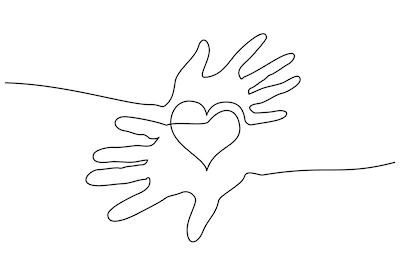オンライン英会話のフリートークでオススメの話題 天気や趣味の話以外で何か
目次
オンライン英会話でフリートーク


今回は「雑談」という観点から
それぞれの文化の違いと共通点について
話してみようと思います
日本人とSmall talk (雑談)

私にとってレッスンを通じて
それぞれの文化の違いや共通点に気が付けることが面白い。
Through lessons
It is very interesting that I notice culture differences and similarities.
例えば
For example
日本人は海外の人に比べると会話をしないように思う。
I think Japanese people tend to be less communication than foreigners.
日本人は空気を読み(between the lines)
言葉にしないで察してあげることに価値を置くことがある。
Sometimes Japanese people tend to read between the lines,
put high value on reading other’s mind without word.
対して海外の人はコミュニケーションを大切にしているように感じる。
On the other hand I feel that foreigners value communication.
例えばアメリカの映画で私は見た。
For example I saw a scene in American movie.
見知らぬ人同士がエレベーターで一緒になったときや
バス停でバスを待っているとき
When stranger get together in the elevator
or waiting for a bus at a bus stop
「やあ。今日はいい天気だね」
「調子はどうだい?」
といった様に話し始めるシーンを目にする。
Like “Hi, it’s fine today.”
”How are you.” start talking.
ああいうシーンは日本では一般的ではない。
さらに「週末はどうだった?」
この質問は日本の職場では近しい同僚にしかしないように思う。
Such a scene is not common in Japan.
Moreover “How was your weekend?”
I think this question is only asked by close workmate In the Japanese office.
もちろん人にもよるし、場合にもよる。けど。
Of course depend on the person. depend on the case.
正確な会話の頻度は人によるだろうし
先生によってイヤーまったくそうだね
というリアクションから
フーンくらいのリアクションまで当然まちまちである
会話の落とし所としては
私はレッスンを終えると気分が上がるのを感じる
I feel cheer up myself after the lesson.
日本人はたわいもない会話( small talk, casual talk )には
人を元気にする力があるという事をもっと再確認 (conform)する必要があると思う
I think Japanese people need to conform that small talk has the power to cheer up people.
などと締めくくれば、このレッスンのことや相手を軽く持ち上げる形になるので
少なくともレッスンの会話では和やかに会話が進むことが多かったように思います。
もう少し話を続けたいときには
私はよくHow are youの話をします。
How are you と「いらっしゃいませ」
How are you って言われても

私は英会話を始めて間もないころ
“How are you”という質問が苦手であった。
When I was just starting my English conversation lesson.
I was not good at the question “How are you”
どのような返答が望ましいものであるのかが分からなかった。
I didn’t know what kind of answer is the most correct answer.
I’m fine. Thank you. And you?
といった形式的な返答文なら学校で習った。
I learned formal responses
”I’m fine. Thank you. And you?”
でもこの答えは簡素すぎるのではないか。
話し手は何かほかの答えを求めているのではないだろうか。
But isn’t this answer too simple.
Probably the speaker is expecting other answer.
そもそもHowの意味が分からない。
家族の様子を聞いているのか
仕事の様子を聞いているのか
話し手の意図が分からず
少し戸惑ってしまうことがあった。
In the first place I don’t understand the meaning of “How “.
How is your family?
How is your work?
I don’t understand the intention of speaker.
I was a little confused.
しかし実際にレッスンを進めていくうちに
“How are you”は形式的なあいさつに過ぎないという事に気が付いた。
However, as I repeated the Lessons,
I realized that “How are you” is just a formal greeting.
実際の先生の反応を見ることで
長い返答はむしろあまり期待されていないことがある
という事に気が付いた。
By seeing the actual teacher’s reaction,
I realized that long response may be rather not expected.
最初に私はこのことは日本人が雑談に慣れ親しんでいない事の
象徴のように感じた。
I think It can be said that this is a symbol that
Japanese people are not accustomed to casual talk.
「いらっしゃいませ」って言われても…

しかし
However
私は気が付いた
I notice
日本の店員がお店に入ったときによく話す掛け声である
「いらっしゃいませ」
のように
細かい返答を期待していない会話を
日本人もしていることに。
Like ”IRASSYAIMASE”
When entering a store, Japanese shop clerk often say
,Welcome meaning,
I notice that Japanese people have a conversation
that don’t expect a detailed responses.
さらに
日本の仕事場でよく耳にする「お疲れ様です」
も同じだ。
In addition
I often hear in Japanese office “OTUKARESAMADESU”
is same.
Thank you for your hard work., meaning.
私は海外の方がそれらのあいさつに対し
何と返答すればよいかわからなく困っているという話を聞いたことがある。
I’ve heard that foreigners are in trouble ,
because they don’t know how to respond to those greetings.
こういった質問に長文で返答されたら
ちょっとしんどいと感じる
You get tired if someone answer these question in long sentences.
まとめです 文化の共通点を考える

文化の違いは強調されやすい
しかしさらに文化の違いについて考えてみると
共通点に気が付く
Cultural differences are easily emphasized.
However, think about cultural differences further,
you will notice something in common, similarities.
「How are you」も「お疲れ様です」も
円滑に会話を進め
お互いの関係性を良くしたいと願っての言葉であることに気が付く。
I realize that ”How are you” and ”OTUKARESAMADESU” have same purpose.
You want to improve the relationship with each other.
簡単な決めつけは避けたい
根底にあるのはどちらの文化もおもいやりの心
であることを忘れないようにしたい
I don’t want to make a decision easily.
I want to keep in mind that
both culture are based on compassion for the other person.
具体的な交流を通じて
文化の違いや共通点に気が付く。
このようなことが私にはとても面白く
また意義深い事のように感じられる。
Through actual communication
It is very interesting that I notice culture differences and similarities.
And I feel meaningful.
最後に フリートークの素材として
 最後まで記事を読んでいただきありがとうございます。
最後まで記事を読んでいただきありがとうございます。
オンライン英会話のフリートークにおいて
趣味の話や好きな食べ物の話の次に何を話せばよいのか
参考にしていただければと思い
ブログにしてみました。
今回ブログに書いた文章はどれも
実際の英会話レッスンにおいて私がよく話し
スムーズに会話が進んだと思っているものです。
一緒に英文も書きましたが
もしかしたら文法的に間違っているかもしれません。
しかし少なくとも英会話レッスンの上では相手に意図は通じました。
出来るだけ簡単な、英会話の場面で発音しやすい
英文にすることを心がけてみました。
英文の間違いなどご指摘いただければ幸いです。




